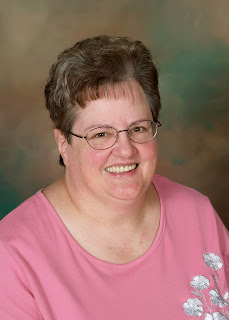It’s hard to believe that 2012 is right around the
corner. I always look forward to the New Year, as it’s a fresh start with new
dreams, ideas, and goals. One thing that I’ve been thinking about lately is
what I want to accomplish in the coming year and how I can get there. What are
my dreams in ministry, mothering, and writing?
Here are my five ways to make it happen. They might sound
elementary, but for me it’s been a good reminder of how I can keep myself on
track in following these dreams.
Start today, not tomorrow: I’ll
let you in on a secret. You don’t have to wait until New Years Day to start
working on your goal. Okay, I know you know that, but if you’re like me, it’s
easy to tell yourself that you’ll try again next January 1st. After months
of too much Mexican food and all the other yummy things I love to eat while in
the US on furlough last year, we returned to Africa, but weeks went by, and I
kept putting off getting back into my normal exercise routine. Trust me, I had
a lot of excuses and I was busy, but one day I decided it was time to stop
making those excuses and lose those extra unwanted pounds. And to stop putting
it off. It would have been easy to just wait until January, but now, I’m so
glad I didn’t keep waiting until tomorrow.

Take a leap of faith:
Last year, Scott told me he wanted me to start a non-profit that would help
fund many of the projects needed to help people’s physical needs. To be honest,
I didn’t see myself running a non-profit. At all. But the need was great, and
despite the fact that I felt ignorant on the subject I knew I needed to at
least try. In looking back over the past first year, I’ve been amazed at how
God has been so faithful, because it certainly wasn’t my brilliant marketing
skills. To date, over $10,000 has been raised to build houses for the homeless,
pay for medical care, fund micro-loans, distribute vitamins, pay for school
supplies for those in need and much more. So even if something is outside your
comfort zone or normal box, don't let that stop you. Take a leap of faith and
watch God work!
Set small, daily goals: This
is something I’ve learned to be essential in my writing. An entire 85,000-word
novel is daunting…unless you tackle in small pieces. Set a goal for a week, a goal
for each day. Give yourself some wiggle room, and then go for it…One day at a
time.
If you get off track,
don’t beat yourself up: Let’s be honest, how many of us start full
speed on our goals in January, but by March we’re completely off track. So what
do we do? We quit. (I know, I’ve been there!) But think about it, it doesn’t
matter if it’s April or October, reset your goals, start moving toward them,
and you’ll see progress. That progress is a huge motivation!
Find an accountability
partner: It always helps to have someone cheering for you, and it’s
even better if they are reaching toward the same goal. Blog about your journey,
join a group or a ministry to get you started, find a prayer partner, tell a
friend and in turn you will see your motivation grow.
The bottom line is that it’s never too late to follow that
dream. I don’t care if you’re eighteen or eighty, God can use our talents,
gifts and dreams. Just be willing to step out on faith and trust Him.
"If anyone speaks, they should do so as one who
speaks the very words of God. If anyone serves, they should do so with the
strength God provides, so that in all things God may be praised through
Jesus Christ." I Peter 4:11
So what about you? What’s your dream? How can you start
making it a reality today? I love to hear your thoughts as well as ways that
have helped you make it happen!
Be blessed,
Lisa
Lisa Harris is a wife, mom, teacher, author, dreamer,
photographer, but most importantly a follower of Christ Jesus.
She currently live with her husband, Scott, and two of their children
near the Indian Ocean in Mozambique as church-planting missionaries, while their
oldest is loving his first year at a missionary boarding school.













